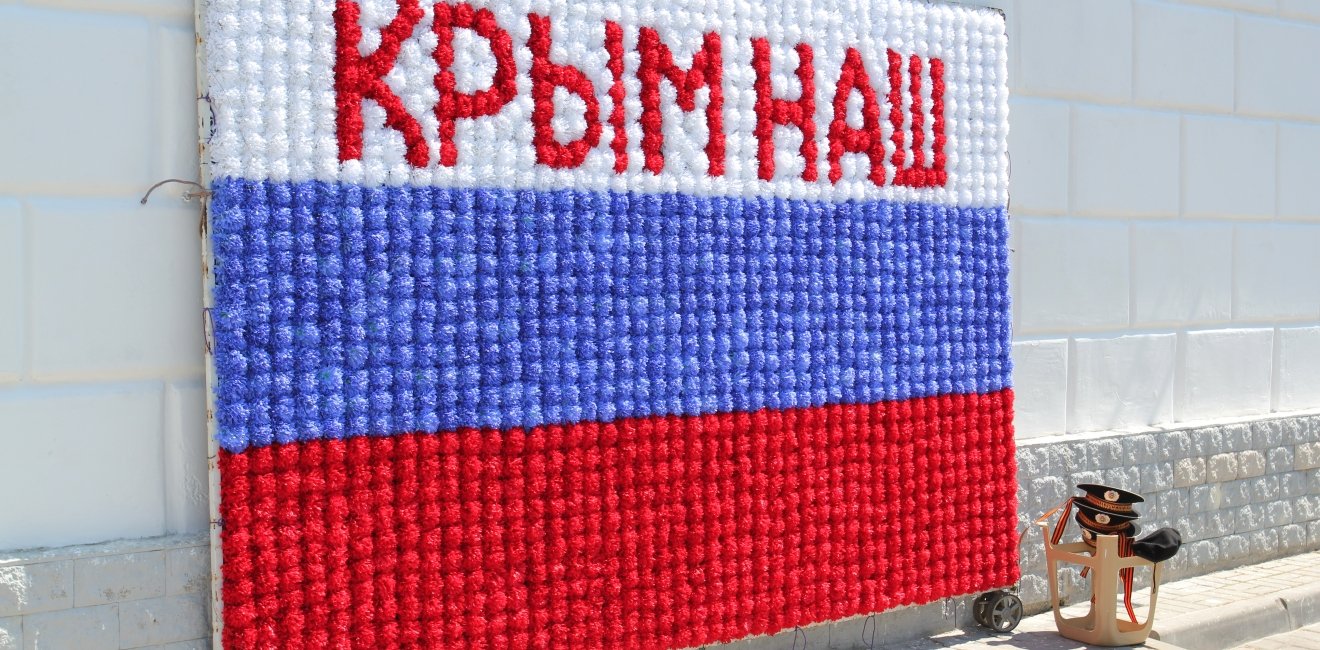
A blog of the Kennan Institute
BY VLADIMIR GEL'MAN
The Russian government’s decision to launch a “special military operation” in Ukraine was astoundingly pernicious. For most Russia watchers, it was also entirely unexpected. Even those who had warned of further deterioration of the situation the day before could hardly have imagined such a catastrophic spiral. This will bring dire consequences for Ukraine, Russia, and the whole world for years to come. Even as this conflict unfolds further, experts face the question of why the Russian leadership made such a decision.
To date, very little is known by outsiders about the mechanisms for making strategic decisions in the Kremlin. That inevitably means many of our current assessments and assumptions may turn out to be wrong. Even so, political science has accumulated considerable experience in studying foreign policy decisions in different states in different eras. This experience might be useful for understanding the decision to launch a Ukrainian assault.
To analyze the essence of this decision, one should not succumb to the temptation to deny Vladimir Putin and his entourage rationality, even while fixing attention on the emotions behind their steps. In any case, most of the steps taken by the Kremlin, both before and after February 24, 2022, look quite rational; there is no reason to consider the launch of this military campaign in this regard as something exceptional.
Rather, it should be assumed that this decision fits into the general logic of public administration in Russia. Its perniciousness was due not to the specifics of Russian policy towards Ukraine, but to more fundamental factors. These include (1) Russian political regime characteristics, (2) Russian state mechanisms of governance, (3) misconceptions about the possible consequences of decisions, and (4) assessments of likely consequences of actions based on previous experience.
It seems likely that the most important factor influencing this disastrous decision was the personalistic nature of Russian authoritarianism. Authoritarian regimes suffer from a lack of freedom of speech just as much, if not more, than citizens living under authoritarian conditions. The lack of alternative sources of information, the lack of opportunities to compare different points of view and make decisions based on the competition of different approaches adversely affects the quality of managerial decision-making. These defects were noted by Soviet dissidents more than half a century ago.
Moreover, over time, in many autocracies, experts are replaced according to the principle “we don’t need smart, we need loyal”: when preparing decisions, the competence of officials gives way to their loyalty.
These aspects in Russia were clearly visible in the field of foreign policy expertise, where the voices in support of a radical military confrontation with the West have recently been louder, while more moderate approaches, most likely, have been little considered. The cloistered atmosphere in which the most important decisions were prepared only exacerbated the decline in their quality.
Moreover, personalist autocracies (unlike one-party regimes, not to mention monarchies) are characterized by a low level of institutionalization in decision-making, which leaves room for almost unlimited voluntarism on the part of the political leadership.
Compare the decision to start a war in Ukraine with its closest equivalent in Soviet history—the decision to send troops to Czechoslovakia in 1968. This decision was preceded by numerous meetings and collective discussions in the Politburo, negotiations with the leadership of Czechoslovakia, and discussions with the Eastern European allies. Although this decision was also detrimental to the USSR, Soviet leadership was able to achieve its goals in Czechoslovakia, while avoiding the worst-case scenario for itself. A diametrically opposite example in Soviet history might be the decision to send troops to Afghanistan, but this decision was made by the country’s deeply ill leaders, who at that time were physically incapable of collective discussions.
The state of collective discussions in today’s Russian leadership was clearly demonstrated by the meeting of the Security Council on February 21, 2022 on the issue of recognizing the DPR and LPR: there was no question of any discussion, and the public view was limited only to an approval by participants of a previously adopted decision (which in the end was radically different from what was publicly announced at the end of the meeting).
Bad Governance
The main goal and main content of public administration in Russia is in rent-seeking. High quality of preparation and decision-making is maintained only in a narrow zone of strategically significant “pockets of efficiency” under the patronage of the political leadership. The Central Bank can serve as an example of this kind.
However, the pockets of efficiency do not stop the general degradation of the quality of public administration. On the contrary: knowing that the Central Bank, having accumulated enough gold and foreign exchange reserves, is capable, the authorities felt their own invulnerability, prompting them to take more decisive, but less thoughtful steps.
In such conditions, foreign and defense policy are affected by the vices of bad governance more than in many other areas. In the absence of civilian control, they are covered with a veil of state secrecy, which is convenient because it allows leadership to hide various miscalculations. This prompts the heads of the relevant departments to strive to achieve the tasks assigned to them quickly and at any cost, not caring about further consequences (for example, achieving the “demilitarization” and “denazification” of Ukraine, not thinking about the management of the territory in the event that these tasks are accomplished) and making unfulfilled promises.
It is not surprising that the possible costs associated with the “special military operation” were downplayed or not taken into account in advance.
Bad Assumptions
In the absence of real expertise and the presence of outright misrepresentation of information, ideas about the opposing side are often built on a multiplication of stereotypes and fears. Russian authorities could project onto the leadership of Ukraine the expectation that the “American puppets” would run away to their masters when threatened, and that the Americans would stop supporting the Ukrainian regime (as happened in 2021 in Afghanistan).
They also projected their own phobias, including ideas that were often repeated by Russian politicians in past public statements and which probably became the basis of strategic decisions. These include views on how Russians and Ukrainians are “one people”; assumptions that the split of Ukraine into Western and Eastern is eternal and irreparable; and opinions that mass pro-Russian sentiments allegedly dominate in Ukraine and only the establishment seems to be captured by the nationalists.
If one looks a little deeper, it is worth noting that these misconceptions are based on an unrealistic and backward worldview inherent not only in Russian leadership, but among many politicians around the world. They are based on how it is supposedly possible to restore the previous and lost political, social, and international order. If in the rhetoric of Donald Trump, he could “make America great again,” then in Russia this idea was embodied in the slogan “we can do it again.” Not surprisingly, with this approach, alternative assumptions about the state of affairs outside the country were not seriously discussed and they remained outside the scope of decision-making.
Bad Past
It is very likely that the Russian authorities saw a military operation in Ukraine as an extrapolation of the annexation of Crimea in 2014, a decision which Putin, in his own words, made unilaterally. It is worth bearing in mind that Crimea, in the eyes of the Russian leadership, looked like a success story: domestic political support for this step turned out to be very high, Ukraine was unable to resist the Kremlin’s steps, and the costs imposed by the West did not look so heavy.
If we leave out the Malaysia Airlines flight that was shot down in July 2014 over the Donbass, then the European and American establishment did not pay much attention to Russia’s actions against Ukraine, and the presence of powerful Russian support groups in the U.S. and Europe made it possible to slow down threats of the most dangerous sanctions for the Kremlin.
Previous successes have given rise to expectations that the West, having experienced various troubles in recent years—from Brexit and the storming of the U.S. Capitol to the American flight from Afghanistan—is in a state of deep and irreversible decline and, in principle, is not capable of decisively resisting Russia. Therefore, the scale of opposition to the war in Ukraine abroad was not accurately calculated. Most likely, the Kremlin erroneously considered that in 2022 everything would follow approximately the same scenario as in 2014, only on a larger scale.
The consequences of the pernicious arrogance that the Russian leadership showed when deciding to launch a “special military operation” in Ukraine were not long in coming. It is not yet clear what lessons Russian leaders will draw from this experience, and whether their future decisions will turn out to be even more harmful.
This article first appeared on Riddle and has been lightly edited for style.
The opinions expressed in this article are those solely of the authors and do not reflect the views of the Kennan Institute.
Author


Kennan Institute
After more than 50 years as a vital part of the Wilson Center legacy, the Kennan Institute has become an independent think tank. You can find the current website for the Kennan Institute at kennaninstitute.org. Please look for future announcements about partnership activities between the Wilson Center and the Kennan Institute at Wilson Center Press Room. The Wilson Center is proud of its historic connection to the Kennan Institute and looks forward to supporting its activities as an independent center of knowledge. The Kennan Institute is committed to improving American understanding of Russia, Ukraine, Central Asia, the South Caucasus, and the surrounding region through research and exchange. Read more

Explore More in The Russia File
Browse The Russia File
Chechnya as a Model of Modern Russia

Russia’s Indigenous Communities and the War in Ukraine

Gas and Power in a Changing US–Russia Relationship

